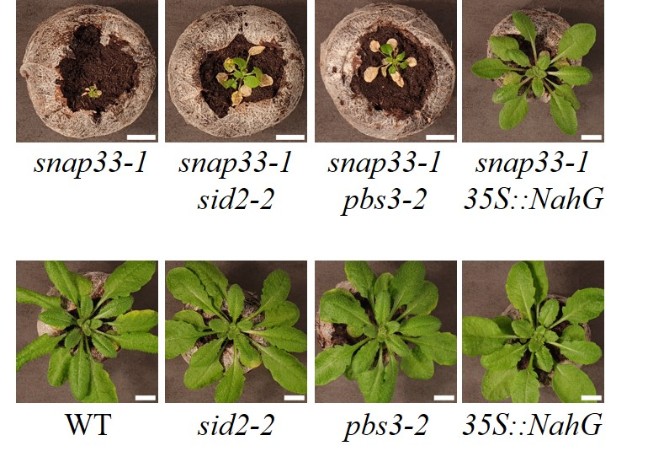How defects in the Arabidopsis secretory pathway lead to autoimmunity
New insights into autoimmune mechanisms of the secretory-deficient Arabidopsis snap33 mutants
The secretory pathway is essential for plant immunity, delivering notably diverse antimicrobial molecules into the extracellular space. The Arabidopsis thaliana Soluble N-ethylmaleimide-sensitive-factor Attachment Protein 33 (SNAP33) receptor is a key actor of this process.
In a research article recently published in The Plant Journal, members of the IPS2 Stress Signalling team, in collaboration with the IPS2 POPS and IJPB Chemistry and Metabolism platforms and colleagues from KAUST (Saudi Arabia), further characterized the role of this gene by analysing the autoimmune phenotypes of several snap33 mutants. By combining quantitative transcriptomic and proteomic analyses with genetic analyses, defence hormones and most notably salicylic acid, were shown to play a major role in the establishment of snap33 phenotypes. Some components of the Nucleotide-binding domain Leucine-rich-repeat Receptor (NLR) signalling were also reported to contribute to snap33 mutant phenotypes, suggesting that the SNAP33 protein would be monitored by NLR(s). Overall, this work reveals key molecular determinants underpinning the Arabidopsis snap33 mutant phenotype and brings novel insights into autoimmunity signalling.

09/02/2024
